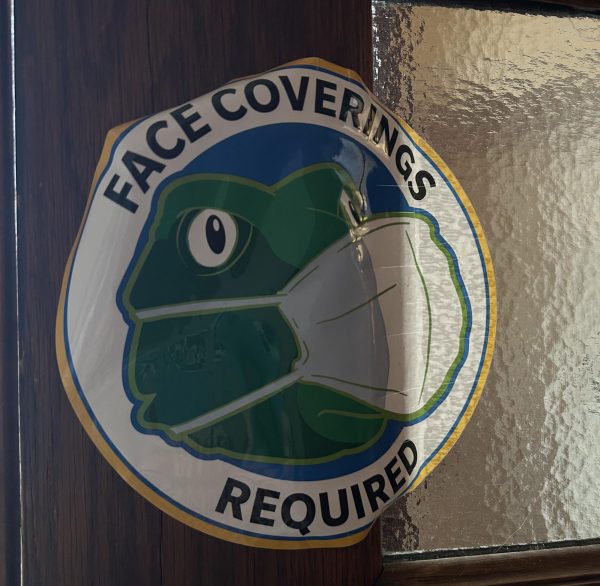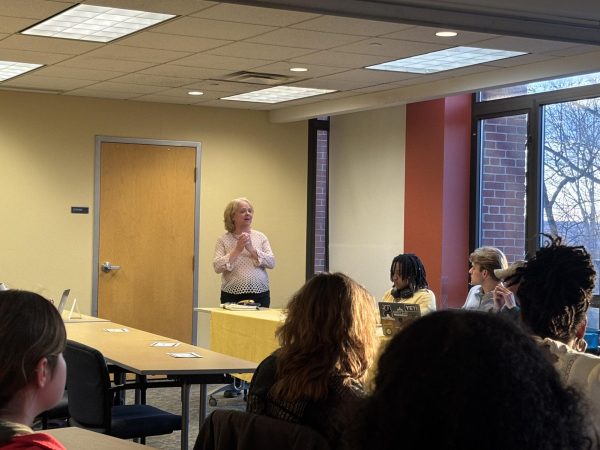Attorney addresses students on Trump’s executive order
Attorney Lawrence Lebowitz, the chair of the immigration group at Cohen & Grigsby, a Pittsburgh law firm, came to Allegheny College on Tuesday, Feb. 7, to meet with students, staff and faculty about the implications of President Donald Trump’s recent executive orders addressing immigration.
The meeting took place in the Tillotson Room of the Tippie Alumni Center at 4:30 p.m. and was in response to Executive Order 13769, “Protecting the Nation from Foreign Terrorist Entry into the United States,” which was released by the White House on Jan. 27.
Lebowitz addressed the possible outcomes regarding the legal case surrounding the order, which is being argued in front of the 9th Circuit U.S. Court of Appeals in San Francisco. Furthermore, he discussed the potential implications of the executive order “Border Security and Immigration Enforcement Improvements,” which was enacted on Jan. 25.
“I don’t know if, in my 30 years of immigration law, I have ever been as busy as I have in these past two weeks,” Lebowitz said.
Executive Order 13769 has garnered substantial attention from media outlets and concerned citizens since it was signed. Dissent arose in the U.S. Department of Justice when the acting attorney general, Sally Yates, was fired after instructing the Department of Justice to not defend the order in court.
“The fact that this is getting attention is a very positive thing,” Lebowitz said. “We need to be concerned with several provisions with this, but we do not need to overreact.”
Controversy has risen over the effectiveness of the order. The seven countries singled out—Iraq, Iran, Syria, Somalia, Sudan, Libya and Yemen—have not been where the majority of jihadists who have committed acts of terror in the U.S. have originated.
“What the order is aiming to do is protect our national security. One of the jobs of the president is protecting our nation on immigration issues,” Lebowitz said. “We cannot forget, the job of the government is to keep all its citizens safe. Measured action to achieve that goal is entirely appropriate. The debate is whether or not this is too much.”
The 13 students, staff and faculty who attended the meeting were worried about the implications the order may have on them, their loved ones or their plans to travel.
“We are still urging students to seek help and counsel if they have any questions,” Assistant Director of International Student Services Lenee McCandless said.
Patricia Ferrey, the director of human resources, was also in attendance and her primary concern was providing resources for those who need it.
“The college’s chief concern is that it will adversely affect members of the community,” Ferrey said.
Lebowitz said she believes this case will go to the U.S. Supreme Court.
“And if we have a deadlock, the lower court’s decision will sustain,” Lebowitz said.
The BBC reported on Thursday, Feb. 9, that the U.S. 9th District Court of Appeals has decided not to block the lower court’s ruling that the order was unconstitutional, and it is now very likely to go to the U.S. Supreme Court.









